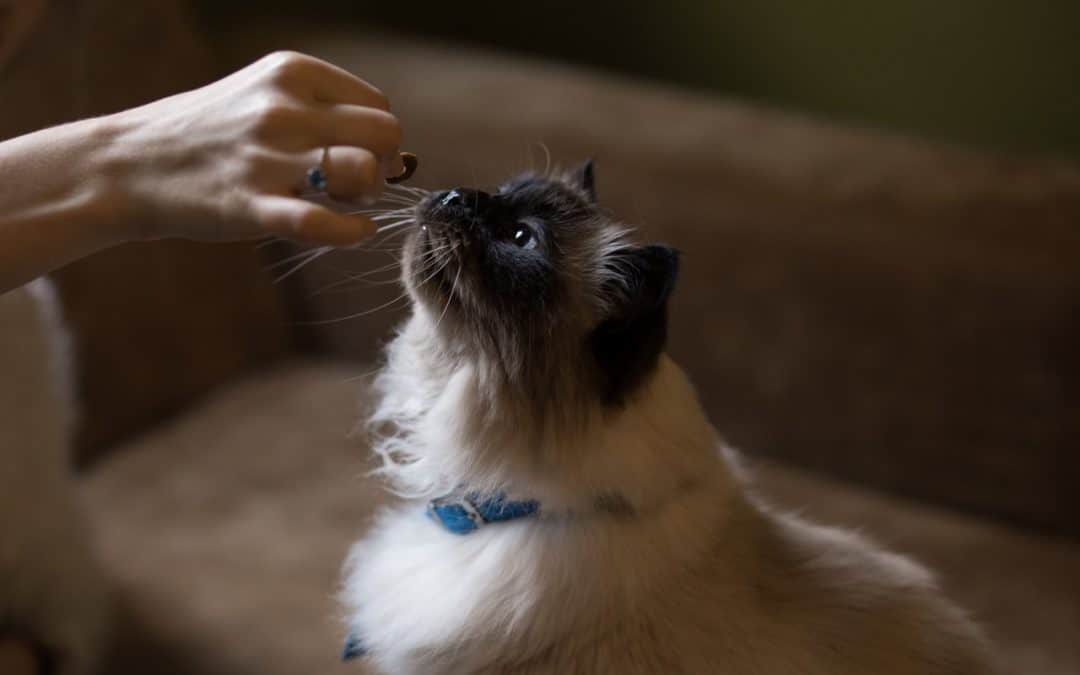Have you noticed your cat scratching or overgrooming their fur? Do they regularly throw up after eating? While these behaviors can be signs of other issues, they are often symptoms of food allergies in cats. Just like humans, cats can be allergic to certain foods. However, the types of foods that cause cat food allergies may surprise you! Let the doctors at Anasazi Animal Clinic explain more…
What is the most common food allergy in cats?
Looking at most cat foods on the market today, they are generally made from chicken, fish, or beef. But, believe it or not, the most common cat food allergies are to chicken, fish, beef, and dairy products! Thankfully there are lots of cat food options using other types of proteins.
Allergy-friendly proteins include:
- Rabbit
- Duck
- Venison
- Turkey
- Lamb
- Buffalo
- Alligator
- Quail
What cat food allergy symptoms should I look out for?
Cat food allergies cause a feline’s immune system to have a negative response to something they eat. Allergies cause inflammation and irritation of the gastrointestinal tract, but can also manifest as skin irritations.
Cat food allergy symptoms can be:
- Incessant itching, scratching, and over-grooming
- Irritated skin
- Vomiting and/or diarrhea
- Skin and/or ear infections
- Runny eyes and/or nose
- Sneezing and/or coughing
Symptoms of food allergy and food intolerance in cats are very similar. It’s important to have your cat thoroughly examined by your veterinarian to determine whether they actually have a food allergy or not.
How are food allergies in cats diagnosed?
If your veterinarian suspects a cat food allergy, they will ask you to start a food trial. They will have you replace your cat’s normal food with a special diet for six to twelve weeks. The new diet will not include any of the same ingredients that their usual food does.
And remember during the trial, your cat can only feed the specific food prescribed by their veterinarian—no treats allowed! We suggest baking the prescribed food into treats if owners have a difficult time not offering anything special during the day.
During the food trial, if any of the symptoms you’ve observed lessen or go away, chances are good your cat has a food allergy. From there, your veterinarian will discuss possible food options based on your pet’s symptoms and the results of the food trial.
Get Help for Cat Food Allergies in Gilbert, Arizona
A proper diet is very important for a happy and healthy cat. The right food keeps a cat energized and provides the vital nutrients their body needs to flourish. If your cat has a food allergy, switching them to a diet that doesn’t hurt them is very important.
Worried your feline companion is showing signs of cat food allergy symptoms? Call Anasazi Animal Clinic today at 480-497-0505 to make an appointment.
Photo by freestocks.org from Pexels

